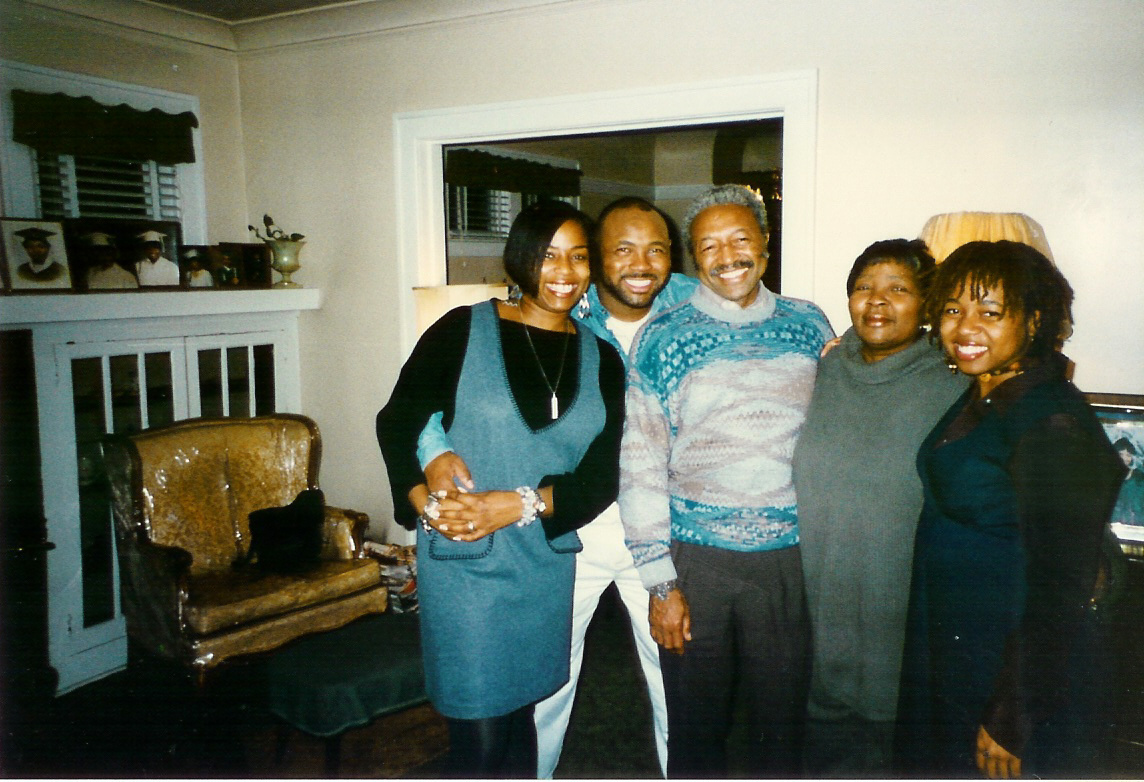
My birth family circa the early '90s: (from left) my sister, Sharon; brother, Curtis Jr.; father, Curtis Sr.; mother, Santranella; and me
When I was growing up in the 70s the kids on my block called my family The Brady Bunch because of the harmony in my home. Then in the 80s they called us the Cosbys (or Huxtables) because I came from a home with two college-educated parents who had professional jobs. And like all families, we had certain ways we did things and with those certain things came certain expectations for us and others: Every summer we took a family trip—“Hasn’t every family been somewhere together?”; We insisted that people eat every time that came to our home—“Why didn’t they offer us something to eat the whole time we were at their home?”; “We don’t handle things like that in our family”—“Why did they say that? Their family is tacky!” I can’t even recall the countless times that my mother was proud of the excellence displayed that she placed in us, her children. Whenever she witnessed or heard about one of our successful presentations, she would celebrate us like any proud parent would, but then she would go a little further and say something like, “I know you mine, but you were the best.”
My family dynamics and the words from my mother gave me great pride in my family. I became haughty—if only in my heart and most times that’s where it was—when a grown woman didn’t know how she should dress or what she should say and when she should say it, things that I learned in my family. She would rarely know how I despised her and exalted myself. These thoughts often remained with me (except when disgust would creep onto my face but would never show the depth of what I was feeling). To my mother’s credit, she also taught us to help others who may not have learned what she and my dad taught us. So I would help these unwitting souls, but for me, the pride message was stronger and went deeper. I really didn’t want to be bothered with no trifling women who didn’t know how to act. I wasn’t their mother and didn’t have time to teach them.
As I have grown in Christ, I have put away this strong black woman attitude and have taken on the Christian mantle of the strong understanding of the flaws of the weak (Romans 15:1). The Kingdom of God mindset is for us to remember that none of us was created equal, we are all members of one body that function differently, and we need each another (1 Corinthians 12). Even those outside of the Kingdom were created in God’s image and should be treated with the love and respect given to the almighty creator, Jesus Christ himself. Yes, pride can make you idolize your family, but being renewed by God’s word truly can help you to be a new person (2 Corinthians 3:18). I am changed so I know that God’s word has transforming power.
Copyright 2009 by Rhonda J. Smith


